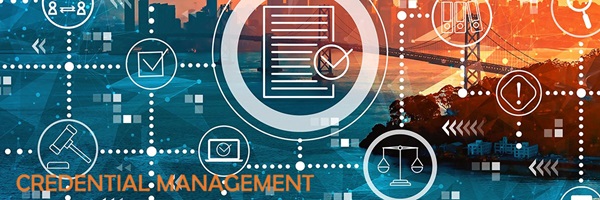"Once awarded the project, in a group setting the students complete their various phases of the project and at completion the approved business partner submits payment to the group. Follow-up on each project includes multiple reviews and lessons learned which are databased"




 DEFINED: A credential is an attestation of qualification, competence, or authority issued to an individual by athird party with a relevant or de facto authority or assumed competence to do so. - Wikipedia
DEFINED: A credential is an attestation of qualification, competence, or authority issued to an individual by athird party with a relevant or de facto authority or assumed competence to do so. - Wikipedia
A: You can prepare for a health informatics career by completing an associate program, gaining the core information technology (IT) and administrative skills needed to work as a medical assistant or records technician. You can also pursue a bachelor's in a healthcare field and then a graduate-level informatics degree.
A: Analytical Thinking Skills
Communication Skills
Curiosity and Drive
Ethics
Organization
Problem-Solving
Computer Programming
Data Analytics
A: Clinical informatics specialists typically have a bachelor's degree and some clinical experience. If you already have a bachelor's degree, you may want to consider a master's in health informatics when applying since master's degrees are usually preferred
A: Jobs involving high levels of human interaction, strategic interpretation, critical decision making, niche skills or subject matter expertise won't be replaced by automation anytime soon. “For instance - Lawyers, Leadership roles, Medical Professionals, Healthcare practitioners, IT & HR Professionals.
A: Concentrated health informatics courses involve expansion of knowledge with coding systems, reimbursement plans, healthcare management quality, legal and ethical aspects of organizational behavior, computer platform technologies, database design and management, and security of digital information.
A: The work that health informatics professionals do is also closely linked to medical coding. The medical coding system is a universal way to classify every type of diagnosis and procedure.
A: Well, data science is a complicated discipline, and data science in health informatics is no exception. You'll be dabbling in such changeable and nuanced areas as business research, sampling, and survey design via extraordinarily complex modern-day data management systems.
A: Health informatics relies heavily on computers, math and data security, which makes it a good fit for those with a background in information technology.
A: Healthcare Informatics is defined as “the integration of healthcare sciences, computer science, information science, and cognitive science to assist in the management of healthcare information”
A: Health informatics, which is also called health information systems, relies on information technology. Workers in the field organize and analyze health records to improve healthcare outcomes. Those workers also develop methods to gather, analyze, and implement patient solutions using existing resources and devices.